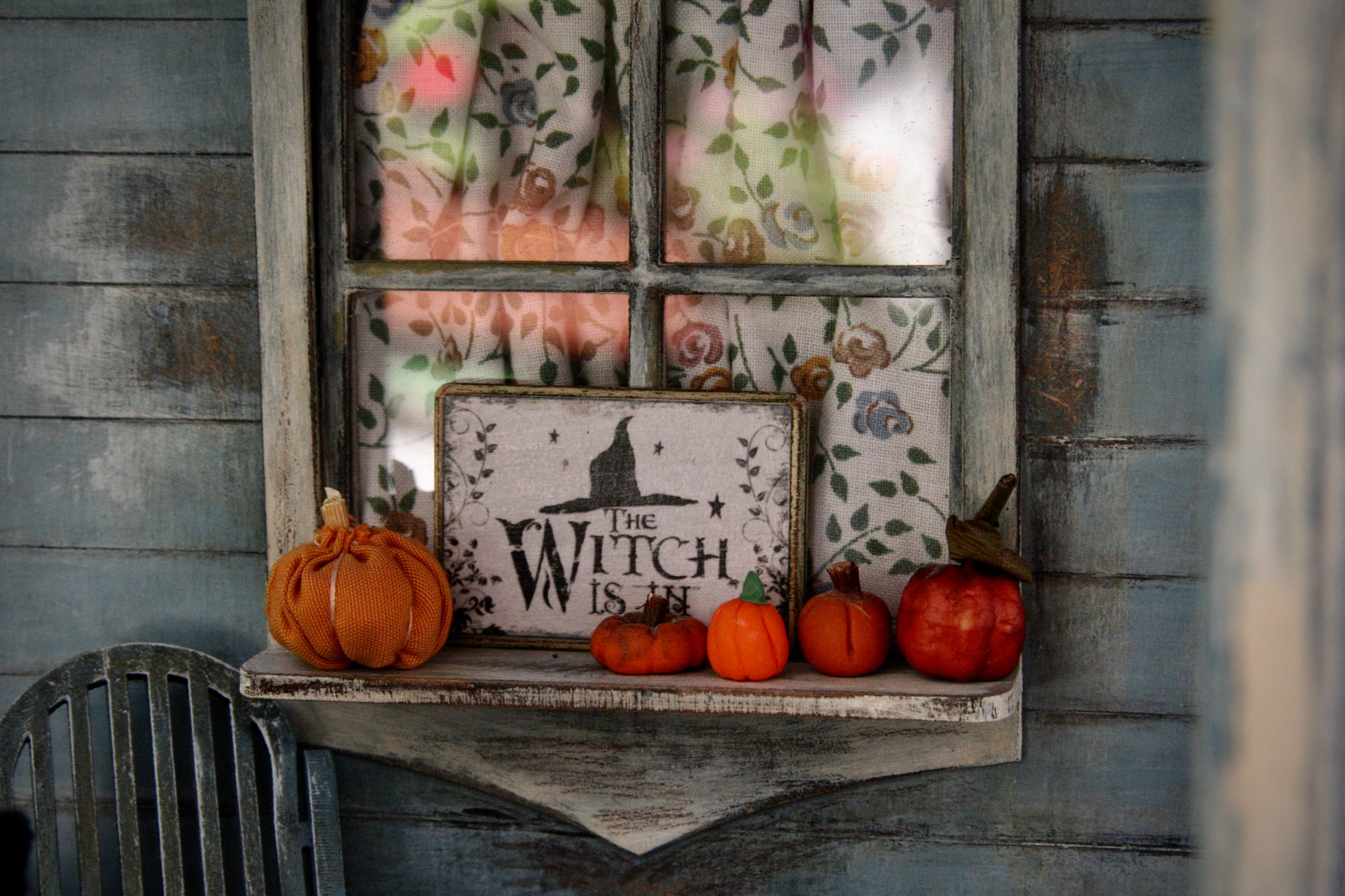The self-induced tortures of provincial life
As night faded toward morning and the pizza box lay empty, the students were filled with a restless desire for even greater knowledge. Would they ever experience sex as something other than sordid and incidental? Ever be able to buy a house, lift their own children into their arms? Did life hold fierce secret joys they could not yet imagine?
They rubbed their eyes and readjusted their ear buds, then returned to Facebook. Only to find themselves glancing up every so often at their pale reflections in the dark rain-streaked windows, wondering what else was out there.
Rain, rain, rain.
 The anxiety of the unknown haunts the youth of Littlefield. Existence in itself seems not totally revealed, there is always something to be waited for, another act, another twist of destiny… but until the big surprise of Fate, the characters are trapped into a tedious waiting. However, the community of Littlefield has all the chances to lead a peaceful life: the town is considered one of the Ten Best Places to live in America, quiet, well-organized, leafy, with perfect lawns, with marvellous landscapes… an ideal place where nothing peculiar ever happens. This dense serenity proves to be in fact unsettling and when the dogs are being poisoned out of the blue, the atmosphere becomes explosive – suspicion arises from every house, relationships shatter and marriages clash under the burden of the untold. It all started with an off-leash proposal for Baldwin Park, the problem was put under debate in the local council and the problem was soon abandoned because of the heated discussions between the two sides – the one claiming that dogs should be let free in the park and the opposite rising concerns about children’s safety, insisting that dogs should be walked in leashes.
This is the moment when the characters prove their insecurities and more than that, they reach to the point of showing their masks. The drama of sincerity is attentively watched by doctor Watkins, a sociologist who came to Littlefield to study the good quality of life. This voyeuristic role permits the reader to notice what kind of attitudes are adopted by the citizens in front of a stranger. All their defence mechanisms are activated, analyzed and then let aside, Watkins digging more and more to the core of their genuine conflicts. Soon, she already picks a symbol of the whole Littlefield, Margaret Downing, a housewife dogged by fears of all kinds.
She worries about Julia and dreads the moment when her teenage daughter will meet the world, cruel and careless, fascinating in the most unexpected ways. Margaret is neurotic, paranoid, she even suspects herself to be crazy… but in fact, she is an unhappy wife, torn between her duties and her secret dreams, with a high aesthetic tendency to see beauty in the trifles of everyday life. She romantically bounces from her husband to the cynical writer next door and she wonders how to transform her life into one worth living. She plays the piano, she attends the local bookclub meetings, she takes her dog for long walks, she reads whenever she finds the time, but she feels empty and her heart resonates with the entire Littlefield. Margaret is the mirror of everyone else – of Hedi’s, of Emily’s, of Bill’s, of George’s, even of Julia’s, the stubborn daughter who tries to become what her mother is not.
Between the citizens of Littlefield and their anguish there are some transitional figures, apparently minor, but responsible for bulding the entire external conflict of the novel – the dogs. They reflect their masters’ souls and they embody their quizzical behaviors. Dogs are dying one by one, leaving worry, anguish and sorrow, they point to the voids in human beings’ life and by their last bark, they warn that comfort leaves the heart dry, smashed by the natural desire to create unsettling scenarios. The emptiness of life creeps in Littlefield as soon as the basic needs are met. Only when some secret enemy - in fact a good citizen aftel all, an insider- stirs the spirits by accidentally poisoning five dogs, the people go wild. The verdict Clarice Watkins tries to reach in her study is vaguish… she realizes that Littlefield represents the complexes of a little community lost in the vast diversity of the Globe, a group rather wealthy searching for meaning. But Clarice herself is touched by the Littlefield sindrom. She tries to heal from an emotional wound of her own by studying the scars of others, by detaching and putting their lives under the microscope. Clarice leaves in a hurry from Littlefield, realising she is on the wrong track… she can’t study Littlefield as she herself has a touch of its disease.
Suzanne Berne has a rather wry style. She creates a beautiful environment, mixes the characters and make them see their world in minute detail, the objects from their homes, for example, become vital for shaping their attitudes. Margaret sees the belt buckle of George and realizes she is desperate for love. Julia heads towards school and sees a snow drift, what is odd is that the way sun patches play on the ice makes her imagine a drowning puppy and she throws herself ahead, revealing an emotional turmoil hard to be deciphered at first sight… separations issues, depression or only some typical teenager-like calls for attention? The author makes Littlefiled to echo the worries of its inhabitans and combines beautiful descriptions with sullen monologues, so the general impression is that of a balanced book, as the author called it, a social comedy about menace, but in fact reading The dogs of Littlefield proves a harsh experience, partly tedious because of the contrast between the minor problems of the characters and the fuss made around them, partly intense, given the amount of pain that human beings are able to fabricate for themselves, woven from fears and unfulfilled desires. Partly it’s the same atmosphere of J.K.Rowling’s Casual Vacancy, only that the narrator here in Littlefield is more compassionate. There is no need for judging, there are no major social inequalities concerned, there are no pushy factions that split the town in two obvious sides. Here in Littlefield people are shadows, they creep into each other’s wounds and mirror themselves, the dog problem being only the entrance into a vicious circle of suspicion and shattered personalities.
STRENGTHS
Exquisite descriptions, intelligent associations, humorous dialogues, minor conflicts presented as breathtaking Greek tragedies.
WEAKNESSES
The subject proves to have consumated itself before the end of the book.
RECOMMENDATIONS
For all of those interested by the secret intricacies of provincial life, for dog lovers and for all ambitious English learners.
[recenzie scrisă de Cristina Stancu pentru Okian]
Citește mai mult pe bookblog.ro
The anxiety of the unknown haunts the youth of Littlefield. Existence in itself seems not totally revealed, there is always something to be waited for, another act, another twist of destiny… but until the big surprise of Fate, the characters are trapped into a tedious waiting. However, the community of Littlefield has all the chances to lead a peaceful life: the town is considered one of the Ten Best Places to live in America, quiet, well-organized, leafy, with perfect lawns, with marvellous landscapes… an ideal place where nothing peculiar ever happens. This dense serenity proves to be in fact unsettling and when the dogs are being poisoned out of the blue, the atmosphere becomes explosive – suspicion arises from every house, relationships shatter and marriages clash under the burden of the untold. It all started with an off-leash proposal for Baldwin Park, the problem was put under debate in the local council and the problem was soon abandoned because of the heated discussions between the two sides – the one claiming that dogs should be let free in the park and the opposite rising concerns about children’s safety, insisting that dogs should be walked in leashes.
This is the moment when the characters prove their insecurities and more than that, they reach to the point of showing their masks. The drama of sincerity is attentively watched by doctor Watkins, a sociologist who came to Littlefield to study the good quality of life. This voyeuristic role permits the reader to notice what kind of attitudes are adopted by the citizens in front of a stranger. All their defence mechanisms are activated, analyzed and then let aside, Watkins digging more and more to the core of their genuine conflicts. Soon, she already picks a symbol of the whole Littlefield, Margaret Downing, a housewife dogged by fears of all kinds.
She worries about Julia and dreads the moment when her teenage daughter will meet the world, cruel and careless, fascinating in the most unexpected ways. Margaret is neurotic, paranoid, she even suspects herself to be crazy… but in fact, she is an unhappy wife, torn between her duties and her secret dreams, with a high aesthetic tendency to see beauty in the trifles of everyday life. She romantically bounces from her husband to the cynical writer next door and she wonders how to transform her life into one worth living. She plays the piano, she attends the local bookclub meetings, she takes her dog for long walks, she reads whenever she finds the time, but she feels empty and her heart resonates with the entire Littlefield. Margaret is the mirror of everyone else – of Hedi’s, of Emily’s, of Bill’s, of George’s, even of Julia’s, the stubborn daughter who tries to become what her mother is not.
Between the citizens of Littlefield and their anguish there are some transitional figures, apparently minor, but responsible for bulding the entire external conflict of the novel – the dogs. They reflect their masters’ souls and they embody their quizzical behaviors. Dogs are dying one by one, leaving worry, anguish and sorrow, they point to the voids in human beings’ life and by their last bark, they warn that comfort leaves the heart dry, smashed by the natural desire to create unsettling scenarios. The emptiness of life creeps in Littlefield as soon as the basic needs are met. Only when some secret enemy - in fact a good citizen aftel all, an insider- stirs the spirits by accidentally poisoning five dogs, the people go wild. The verdict Clarice Watkins tries to reach in her study is vaguish… she realizes that Littlefield represents the complexes of a little community lost in the vast diversity of the Globe, a group rather wealthy searching for meaning. But Clarice herself is touched by the Littlefield sindrom. She tries to heal from an emotional wound of her own by studying the scars of others, by detaching and putting their lives under the microscope. Clarice leaves in a hurry from Littlefield, realising she is on the wrong track… she can’t study Littlefield as she herself has a touch of its disease.
Suzanne Berne has a rather wry style. She creates a beautiful environment, mixes the characters and make them see their world in minute detail, the objects from their homes, for example, become vital for shaping their attitudes. Margaret sees the belt buckle of George and realizes she is desperate for love. Julia heads towards school and sees a snow drift, what is odd is that the way sun patches play on the ice makes her imagine a drowning puppy and she throws herself ahead, revealing an emotional turmoil hard to be deciphered at first sight… separations issues, depression or only some typical teenager-like calls for attention? The author makes Littlefiled to echo the worries of its inhabitans and combines beautiful descriptions with sullen monologues, so the general impression is that of a balanced book, as the author called it, a social comedy about menace, but in fact reading The dogs of Littlefield proves a harsh experience, partly tedious because of the contrast between the minor problems of the characters and the fuss made around them, partly intense, given the amount of pain that human beings are able to fabricate for themselves, woven from fears and unfulfilled desires. Partly it’s the same atmosphere of J.K.Rowling’s Casual Vacancy, only that the narrator here in Littlefield is more compassionate. There is no need for judging, there are no major social inequalities concerned, there are no pushy factions that split the town in two obvious sides. Here in Littlefield people are shadows, they creep into each other’s wounds and mirror themselves, the dog problem being only the entrance into a vicious circle of suspicion and shattered personalities.
STRENGTHS
Exquisite descriptions, intelligent associations, humorous dialogues, minor conflicts presented as breathtaking Greek tragedies.
WEAKNESSES
The subject proves to have consumated itself before the end of the book.
RECOMMENDATIONS
For all of those interested by the secret intricacies of provincial life, for dog lovers and for all ambitious English learners.
[recenzie scrisă de Cristina Stancu pentru Okian]
Citește mai mult pe bookblog.ro
 The anxiety of the unknown haunts the youth of Littlefield. Existence in itself seems not totally revealed, there is always something to be waited for, another act, another twist of destiny… but until the big surprise of Fate, the characters are trapped into a tedious waiting. However, the community of Littlefield has all the chances to lead a peaceful life: the town is considered one of the Ten Best Places to live in America, quiet, well-organized, leafy, with perfect lawns, with marvellous landscapes… an ideal place where nothing peculiar ever happens. This dense serenity proves to be in fact unsettling and when the dogs are being poisoned out of the blue, the atmosphere becomes explosive – suspicion arises from every house, relationships shatter and marriages clash under the burden of the untold. It all started with an off-leash proposal for Baldwin Park, the problem was put under debate in the local council and the problem was soon abandoned because of the heated discussions between the two sides – the one claiming that dogs should be let free in the park and the opposite rising concerns about children’s safety, insisting that dogs should be walked in leashes.
This is the moment when the characters prove their insecurities and more than that, they reach to the point of showing their masks. The drama of sincerity is attentively watched by doctor Watkins, a sociologist who came to Littlefield to study the good quality of life. This voyeuristic role permits the reader to notice what kind of attitudes are adopted by the citizens in front of a stranger. All their defence mechanisms are activated, analyzed and then let aside, Watkins digging more and more to the core of their genuine conflicts. Soon, she already picks a symbol of the whole Littlefield, Margaret Downing, a housewife dogged by fears of all kinds.
She worries about Julia and dreads the moment when her teenage daughter will meet the world, cruel and careless, fascinating in the most unexpected ways. Margaret is neurotic, paranoid, she even suspects herself to be crazy… but in fact, she is an unhappy wife, torn between her duties and her secret dreams, with a high aesthetic tendency to see beauty in the trifles of everyday life. She romantically bounces from her husband to the cynical writer next door and she wonders how to transform her life into one worth living. She plays the piano, she attends the local bookclub meetings, she takes her dog for long walks, she reads whenever she finds the time, but she feels empty and her heart resonates with the entire Littlefield. Margaret is the mirror of everyone else – of Hedi’s, of Emily’s, of Bill’s, of George’s, even of Julia’s, the stubborn daughter who tries to become what her mother is not.
Between the citizens of Littlefield and their anguish there are some transitional figures, apparently minor, but responsible for bulding the entire external conflict of the novel – the dogs. They reflect their masters’ souls and they embody their quizzical behaviors. Dogs are dying one by one, leaving worry, anguish and sorrow, they point to the voids in human beings’ life and by their last bark, they warn that comfort leaves the heart dry, smashed by the natural desire to create unsettling scenarios. The emptiness of life creeps in Littlefield as soon as the basic needs are met. Only when some secret enemy - in fact a good citizen aftel all, an insider- stirs the spirits by accidentally poisoning five dogs, the people go wild. The verdict Clarice Watkins tries to reach in her study is vaguish… she realizes that Littlefield represents the complexes of a little community lost in the vast diversity of the Globe, a group rather wealthy searching for meaning. But Clarice herself is touched by the Littlefield sindrom. She tries to heal from an emotional wound of her own by studying the scars of others, by detaching and putting their lives under the microscope. Clarice leaves in a hurry from Littlefield, realising she is on the wrong track… she can’t study Littlefield as she herself has a touch of its disease.
Suzanne Berne has a rather wry style. She creates a beautiful environment, mixes the characters and make them see their world in minute detail, the objects from their homes, for example, become vital for shaping their attitudes. Margaret sees the belt buckle of George and realizes she is desperate for love. Julia heads towards school and sees a snow drift, what is odd is that the way sun patches play on the ice makes her imagine a drowning puppy and she throws herself ahead, revealing an emotional turmoil hard to be deciphered at first sight… separations issues, depression or only some typical teenager-like calls for attention? The author makes Littlefiled to echo the worries of its inhabitans and combines beautiful descriptions with sullen monologues, so the general impression is that of a balanced book, as the author called it, a social comedy about menace, but in fact reading The dogs of Littlefield proves a harsh experience, partly tedious because of the contrast between the minor problems of the characters and the fuss made around them, partly intense, given the amount of pain that human beings are able to fabricate for themselves, woven from fears and unfulfilled desires. Partly it’s the same atmosphere of J.K.Rowling’s Casual Vacancy, only that the narrator here in Littlefield is more compassionate. There is no need for judging, there are no major social inequalities concerned, there are no pushy factions that split the town in two obvious sides. Here in Littlefield people are shadows, they creep into each other’s wounds and mirror themselves, the dog problem being only the entrance into a vicious circle of suspicion and shattered personalities.
STRENGTHS
Exquisite descriptions, intelligent associations, humorous dialogues, minor conflicts presented as breathtaking Greek tragedies.
WEAKNESSES
The subject proves to have consumated itself before the end of the book.
RECOMMENDATIONS
For all of those interested by the secret intricacies of provincial life, for dog lovers and for all ambitious English learners.
[recenzie scrisă de Cristina Stancu pentru Okian]
Citește mai mult pe bookblog.ro
The anxiety of the unknown haunts the youth of Littlefield. Existence in itself seems not totally revealed, there is always something to be waited for, another act, another twist of destiny… but until the big surprise of Fate, the characters are trapped into a tedious waiting. However, the community of Littlefield has all the chances to lead a peaceful life: the town is considered one of the Ten Best Places to live in America, quiet, well-organized, leafy, with perfect lawns, with marvellous landscapes… an ideal place where nothing peculiar ever happens. This dense serenity proves to be in fact unsettling and when the dogs are being poisoned out of the blue, the atmosphere becomes explosive – suspicion arises from every house, relationships shatter and marriages clash under the burden of the untold. It all started with an off-leash proposal for Baldwin Park, the problem was put under debate in the local council and the problem was soon abandoned because of the heated discussions between the two sides – the one claiming that dogs should be let free in the park and the opposite rising concerns about children’s safety, insisting that dogs should be walked in leashes.
This is the moment when the characters prove their insecurities and more than that, they reach to the point of showing their masks. The drama of sincerity is attentively watched by doctor Watkins, a sociologist who came to Littlefield to study the good quality of life. This voyeuristic role permits the reader to notice what kind of attitudes are adopted by the citizens in front of a stranger. All their defence mechanisms are activated, analyzed and then let aside, Watkins digging more and more to the core of their genuine conflicts. Soon, she already picks a symbol of the whole Littlefield, Margaret Downing, a housewife dogged by fears of all kinds.
She worries about Julia and dreads the moment when her teenage daughter will meet the world, cruel and careless, fascinating in the most unexpected ways. Margaret is neurotic, paranoid, she even suspects herself to be crazy… but in fact, she is an unhappy wife, torn between her duties and her secret dreams, with a high aesthetic tendency to see beauty in the trifles of everyday life. She romantically bounces from her husband to the cynical writer next door and she wonders how to transform her life into one worth living. She plays the piano, she attends the local bookclub meetings, she takes her dog for long walks, she reads whenever she finds the time, but she feels empty and her heart resonates with the entire Littlefield. Margaret is the mirror of everyone else – of Hedi’s, of Emily’s, of Bill’s, of George’s, even of Julia’s, the stubborn daughter who tries to become what her mother is not.
Between the citizens of Littlefield and their anguish there are some transitional figures, apparently minor, but responsible for bulding the entire external conflict of the novel – the dogs. They reflect their masters’ souls and they embody their quizzical behaviors. Dogs are dying one by one, leaving worry, anguish and sorrow, they point to the voids in human beings’ life and by their last bark, they warn that comfort leaves the heart dry, smashed by the natural desire to create unsettling scenarios. The emptiness of life creeps in Littlefield as soon as the basic needs are met. Only when some secret enemy - in fact a good citizen aftel all, an insider- stirs the spirits by accidentally poisoning five dogs, the people go wild. The verdict Clarice Watkins tries to reach in her study is vaguish… she realizes that Littlefield represents the complexes of a little community lost in the vast diversity of the Globe, a group rather wealthy searching for meaning. But Clarice herself is touched by the Littlefield sindrom. She tries to heal from an emotional wound of her own by studying the scars of others, by detaching and putting their lives under the microscope. Clarice leaves in a hurry from Littlefield, realising she is on the wrong track… she can’t study Littlefield as she herself has a touch of its disease.
Suzanne Berne has a rather wry style. She creates a beautiful environment, mixes the characters and make them see their world in minute detail, the objects from their homes, for example, become vital for shaping their attitudes. Margaret sees the belt buckle of George and realizes she is desperate for love. Julia heads towards school and sees a snow drift, what is odd is that the way sun patches play on the ice makes her imagine a drowning puppy and she throws herself ahead, revealing an emotional turmoil hard to be deciphered at first sight… separations issues, depression or only some typical teenager-like calls for attention? The author makes Littlefiled to echo the worries of its inhabitans and combines beautiful descriptions with sullen monologues, so the general impression is that of a balanced book, as the author called it, a social comedy about menace, but in fact reading The dogs of Littlefield proves a harsh experience, partly tedious because of the contrast between the minor problems of the characters and the fuss made around them, partly intense, given the amount of pain that human beings are able to fabricate for themselves, woven from fears and unfulfilled desires. Partly it’s the same atmosphere of J.K.Rowling’s Casual Vacancy, only that the narrator here in Littlefield is more compassionate. There is no need for judging, there are no major social inequalities concerned, there are no pushy factions that split the town in two obvious sides. Here in Littlefield people are shadows, they creep into each other’s wounds and mirror themselves, the dog problem being only the entrance into a vicious circle of suspicion and shattered personalities.
STRENGTHS
Exquisite descriptions, intelligent associations, humorous dialogues, minor conflicts presented as breathtaking Greek tragedies.
WEAKNESSES
The subject proves to have consumated itself before the end of the book.
RECOMMENDATIONS
For all of those interested by the secret intricacies of provincial life, for dog lovers and for all ambitious English learners.
[recenzie scrisă de Cristina Stancu pentru Okian]
Citește mai mult pe bookblog.ro 







